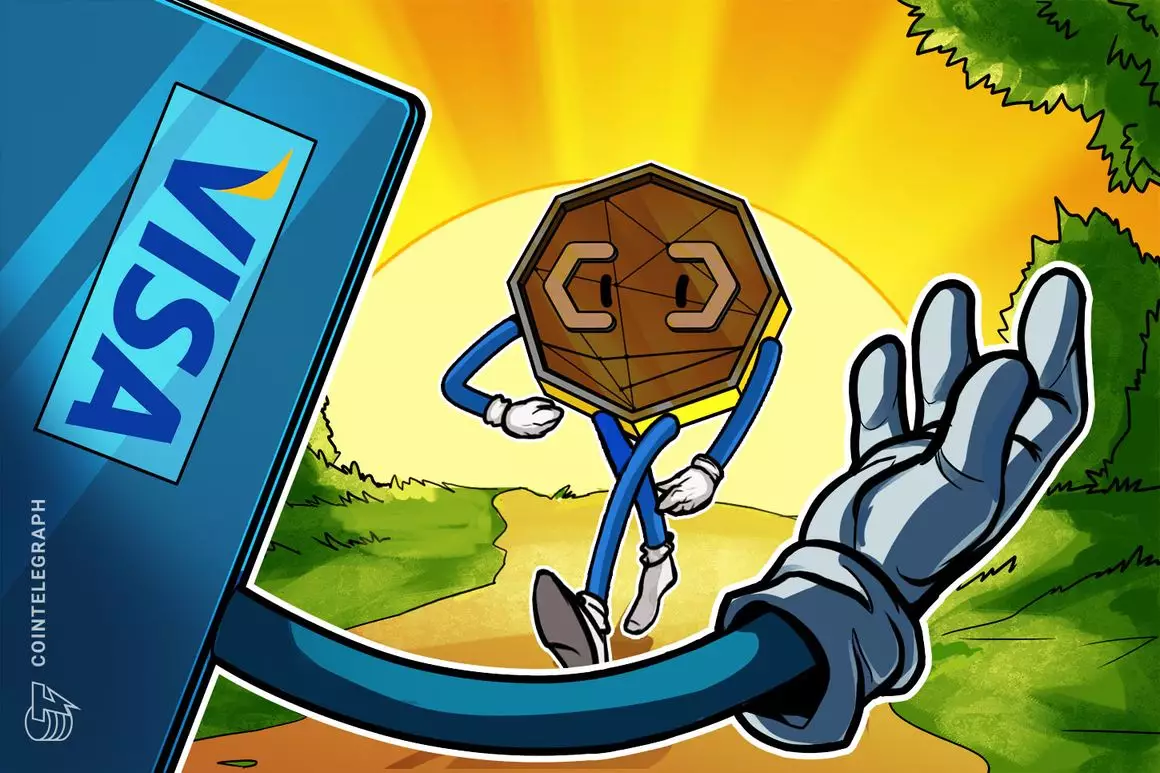Global payments processor, Visa, has recently announced its support for USD Coin (USDC) payments settled on the Solana blockchain. This marks a significant expansion of Visa’s stablecoin offering and demonstrates the company’s growing interest in cryptocurrencies and blockchain technology. With live and completed pilots already underway, Visa is leveraging the benefits of USDC and blockchain platforms such as Ethereum and Solana to enhance cross-border settlement speeds and streamline payment processes.
Visa’s Adoption of USDC
Visa’s integration of USDC issued on Ethereum and Solana into its ecosystem allows for the utilization of Visa’s treasury and settlement systems, bridging the gap between traditional finance and Web3. By tapping into stablecoins like USDC, Visa aims to improve the speed and efficiency of cross-border settlements, benefiting merchants, consumers, and payment processors alike. Cuy Sheffield, Visa’s head of crypto, highlights the importance of stablecoins and blockchains in this endeavor.
Pilots and Collaborations
In collaboration with Crypto.com, Visa began testing USDC in 2021, specifically exploring stablecoin settlement on the issuance side. This initial pilot involved using Ethereum-based USDC to receive payments from Crypto.com for cross-border volume on its Australian card program. Prior to this, settlements for cross-border purchases made on Crypto.com Visa cards required time-consuming currency conversion processes and accrued wire transfer fees. By leveraging USDC, Crypto.com now benefits from simplified settlement obligations for its Australian Visa card.
The Role of Circle
Another essential player in Visa’s expansion of its stablecoin offering is Circle, the issuer of USD Coin. Circle co-founder and CEO, Jeremy Allaire, emphasizes the blockchain innovation offered by this partnership, stating that USDC was designed to provide a functional digital dollar that facilitates secure and reliable payments at internet speed. By partnering with Circle, Visa can further enhance its payment capabilities and send funds to USDC acquirers, including Worldpay and Nuvei.
Increased Settlement Times for Merchants
The integration of USDC into Visa’s ecosystem not only benefits Visa and its partners but also offers advantages to merchants. Payment processors like Worldpay and Nuvei can now route USDC payments to the merchants they serve, effectively connecting Visa’s traditional fiat ecosystem to the wider cryptocurrency space. This integration is expected to result in faster settlement times for merchants, providing them with more flexibility in receiving funds and effectively managing their treasury operations.
Worldpay, a prominent merchant solutions provider, has been at the forefront of cryptocurrency adoption. In 2013, Worldpay partnered with Coinbase to enable the exchange to accept fiat-based card payments globally, making it the first of its kind. Nabil Manji, Worldpay’s head of crypto and web3, expresses excitement about Visa’s new USDC settlement service, emphasizing its potential to accelerate cross-border commerce through faster and more cost-efficient settlement of consumer payments. Manji also hints at future enhancements, such as 24/7/365 settlement availability and real-time or multiple daily settlements.
In addition to its efforts with stablecoins, Visa is exploring solutions to improve fee settlements for Ethereum transactions. The company is experimenting with a Paymaster smart contract that enables off-chain gas fee settlements. Such smart contracts have the capability to execute payments for users and implement logic for various transaction capabilities. This initiative demonstrates Visa’s commitment to innovation and its ongoing efforts to optimize blockchain-based payment processes.
Visa’s expansion of its stablecoin offering with the inclusion of USD Coin on the Solana blockchain represents a significant advancement in the adoption of cryptocurrencies and blockchain technology. The integration of USDC into Visa’s ecosystem allows for improved cross-border settlement speeds, enhanced payment processes, and increased flexibility for merchants. With collaborations and partnerships with industry leaders like Crypto.com, Circle, and Worldpay, Visa is paving the way for the future of payments, exploring the potential of stablecoins and blockchain technology to revolutionize global commerce.

